Our Work
For more than 50 years, the UNC Charlotte Urban Institute has studied the growth and challenges in our 14-county region. We’ve created plans and visions, conducted surveys and worked with community partners on issues ranging from homelessness to preserving our environmental resources.
Today, our work is focused on using integrated data, mixed-methods studies, data visualization, mapping and more to understand our fast-changing region. We collaborate with organizations in the community and faculty across UNC Charlotte.
And we work to help people in the community understand our findings through a program of community engagements, live events and participation in panels, media appearances and our newsletter.
Our work includes grant-funded research projects such as the Carolinas Urban-Rural Connection and the Gambrell Faculty Fellows, mapping community indicators on the interactive Quality of Life Explorer, engaging the community through our City Walks program, collecting and using data from dozens of partners in the Charlotte Regional Data Trust and much more. Read more about what we do below.
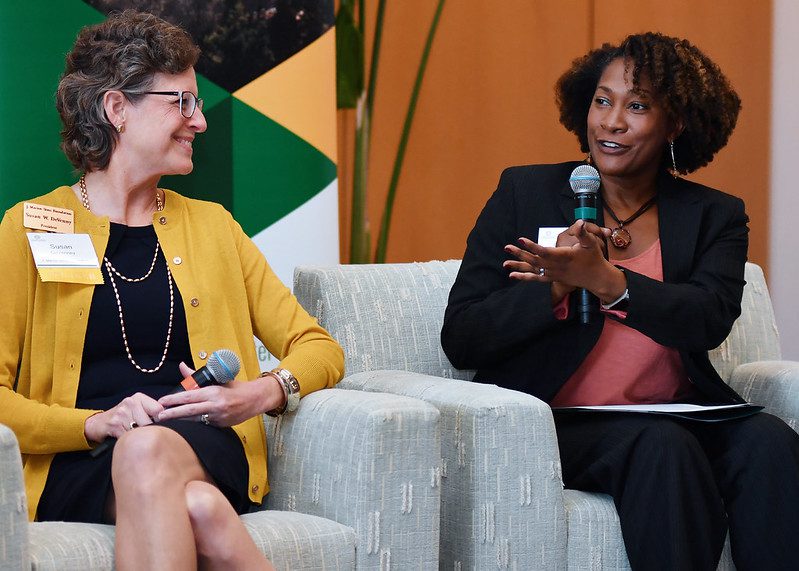
SCHUL FORUM SERIES
The Marianne M. & Norman W. Schul Urban Institute Forum Series was established in 2018 to serve as an annual event focused on policy issues affecting the Charlotte region, convening local leaders, national experts and researchers from the institute and other parts of UNC Charlotte. The institute’s first director, Dr. Norm Schul, and his wife, Marianne ‘73, enabled the creation of the series with a generous gift.
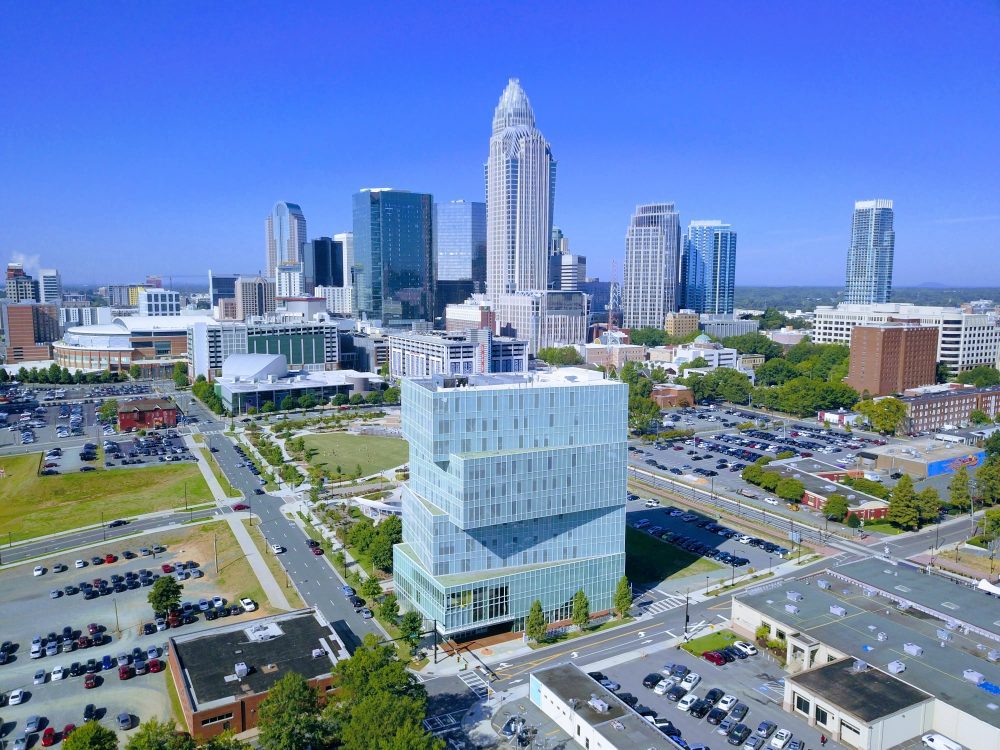
GAMBRELL FACULTY FELLOWS
The Urban Institute’s Faculty Fellows program, with support from The Gambrell Foundation, funds research projects focused on the pressing needs in our community. The second cohort of faculty fellows, to be selected in 2020, is researching issues at the intersection of economic mobility, the coronavirus pandemic and other factors in the Charlotte region.
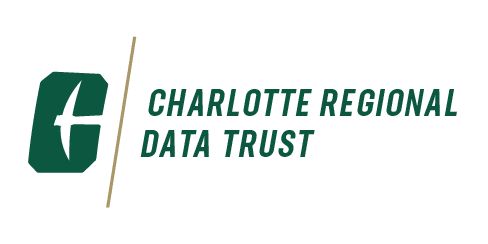
CHARLOTTE REGIONAL DATA TRUST
The Charlotte Regional Data Trust was founded by the UNC Charlotte Foundation in 2004 and merged with the UNC Charlotte Urban Institute in 2012. Its mission is to provide social resources that advance university research and increase the community’s capacity for data-based planning and evaluation.
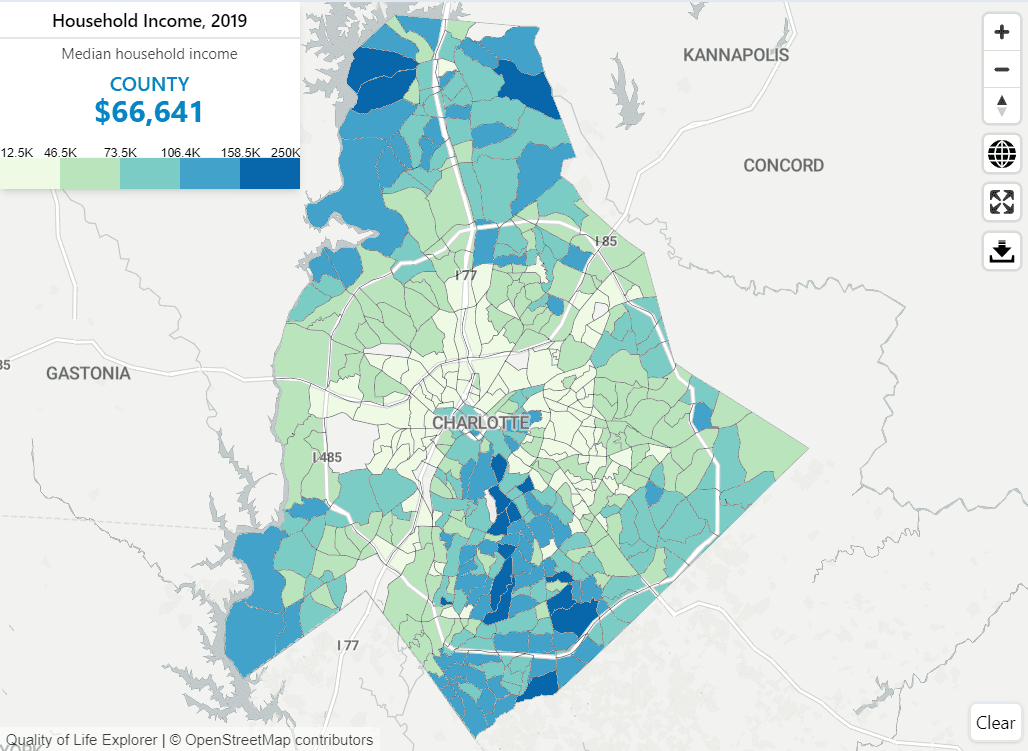
QUALITY OF LIFE EXPLORER
The Quality of Life Explorer is an online tool to explore the social, housing, economic, environmental, and safety conditions in Charlotte and Mecklenburg County.
This tool includes more than 80 maps, all free, interactive and fully embeddable on any website.

SURVEY RESEARCH SERVICES
The Annual Survey is a public opinion survey of Mecklenburg County residents. Conducted for three decades, it collects high-quality data while clients share the cost of survey research. This lets many local agencies and groups obtain valuable information on topics of their choice.
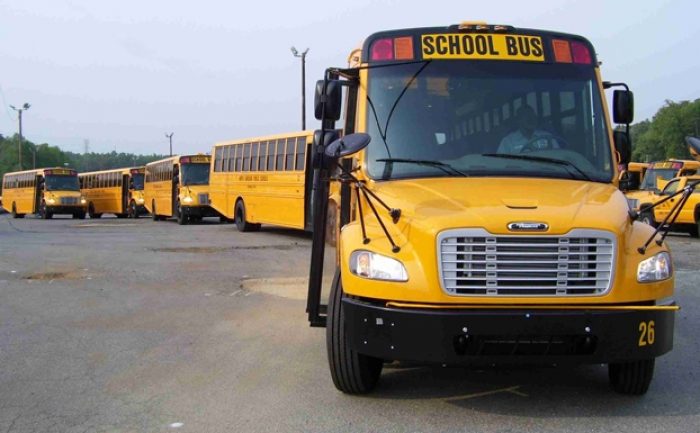
TRANSPORTATION INFORMATION MANAGEMENT SYSTEM (TIMS)
The Transportation Information Management System (TIMS) provides N.C. public school systems a key resource for routing and scheduling buses. It is a collaboration among the UNC Charlotte Urban Institute, the North Carolina Department of Public Instruction (NCDPI) and the Institute for Transportation Research and Education (ITRE) at North Carolina State University.
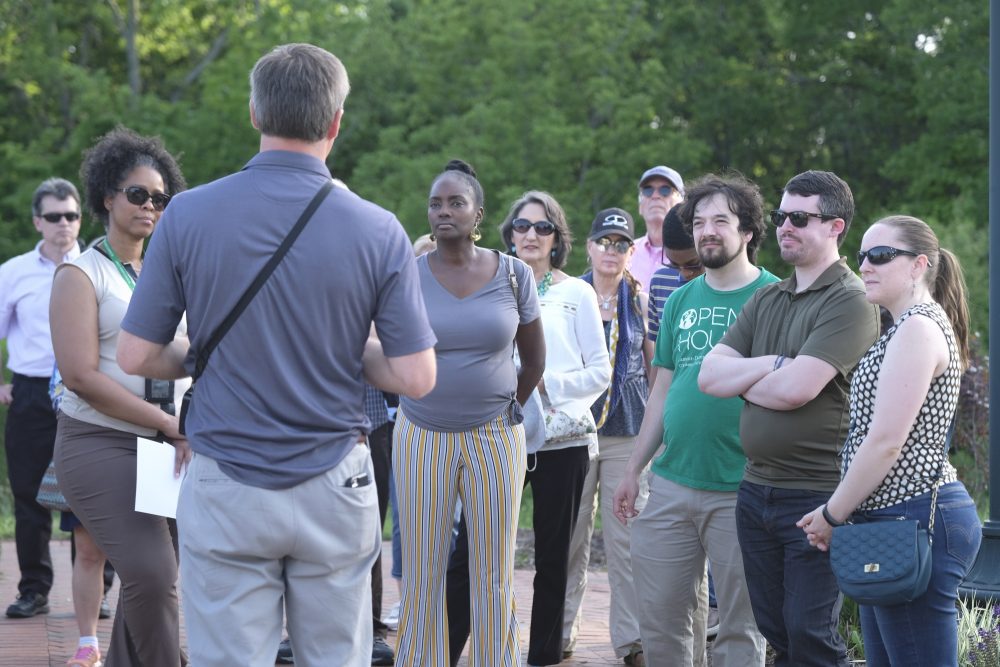
CITY WALKS: DISCOVER CHARLOTTE’S NEIGHBORHOOD STORIES
City Walks are public walking or biking tours throughout May that highlight the city’s neighborhoods. They’re intended to inspire people to get better acquainted with their own neighborhoods, to learn about parts of the city they don’t know well, and to connect with others living in Charlotte.
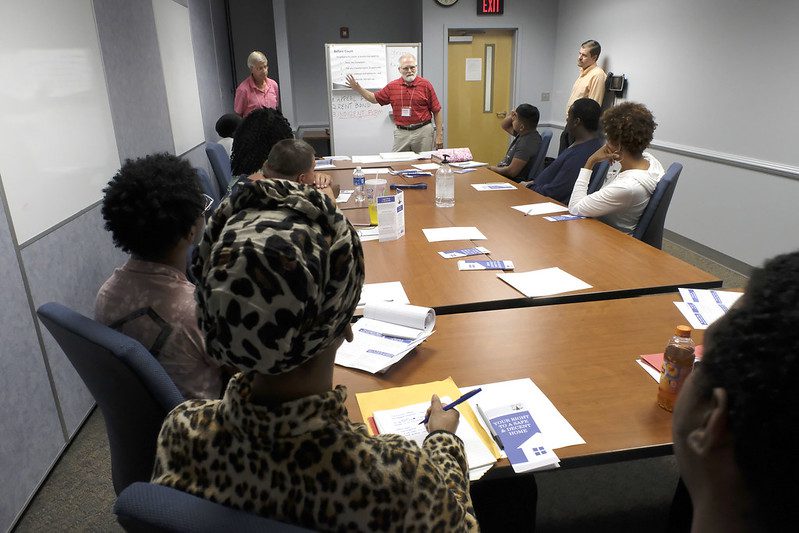
POLICY ANALYSIS
Through a variety of approaches, including live engagement events, grant-funded research projects and regular reports with local partners, the institute analyzes the impact of government policies and programs on the people who live in our region.
Data


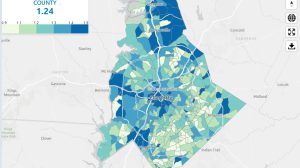

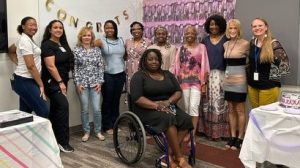
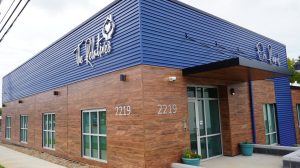

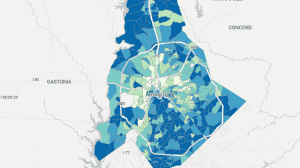
Regional Data and Interactive Maps
The Urban Institute uses qualitative and quantitative data, as well as interactive maps and graphics, to better understand our region and examine possible solutions to the challenges we face.